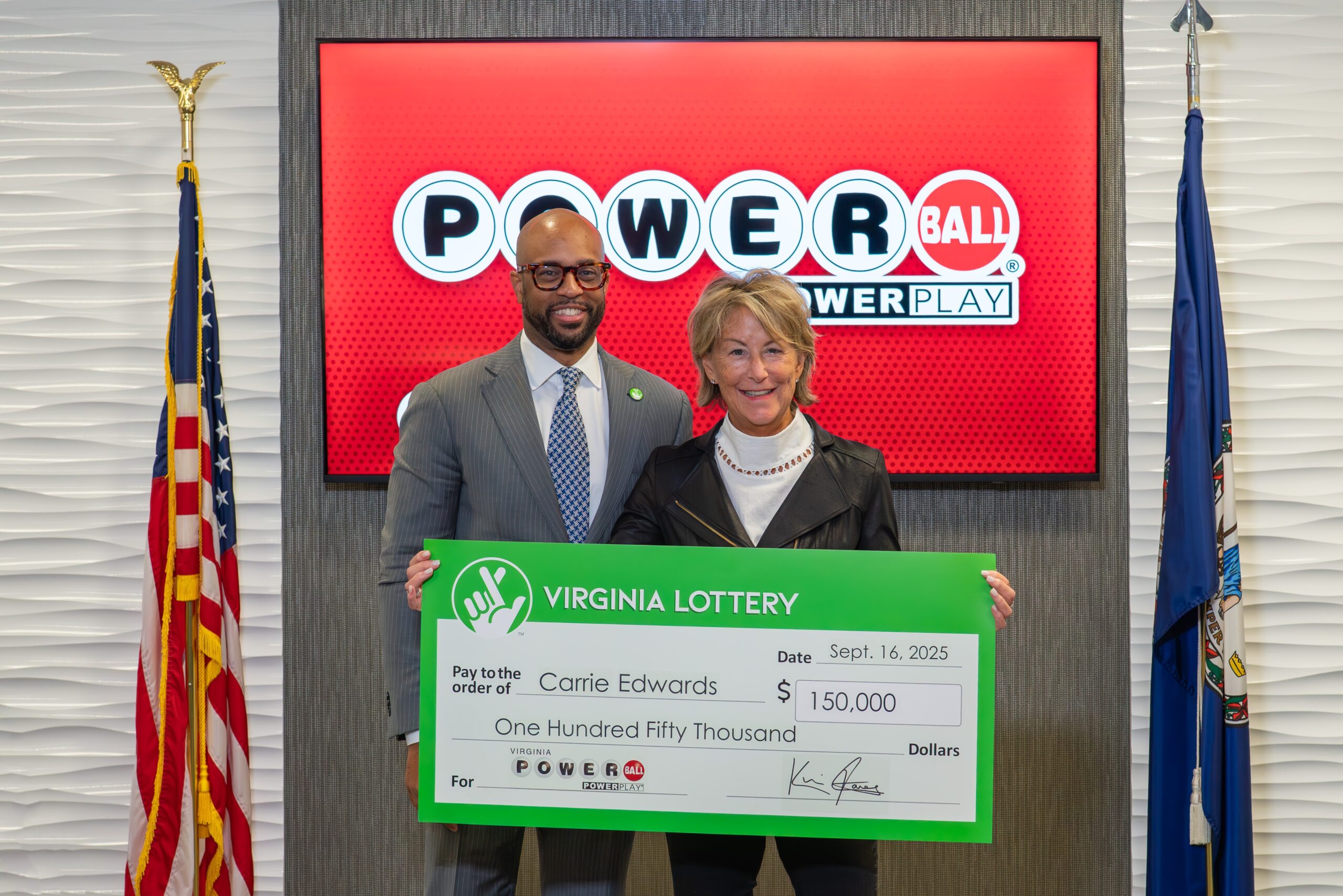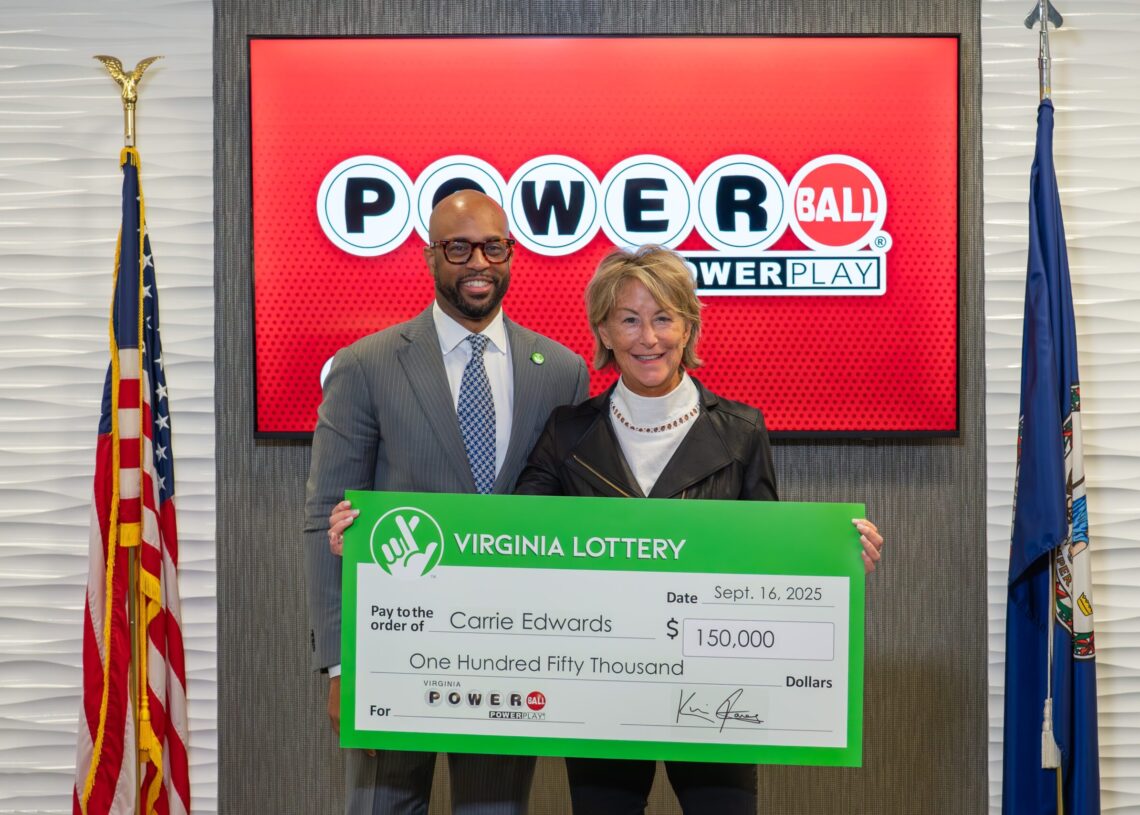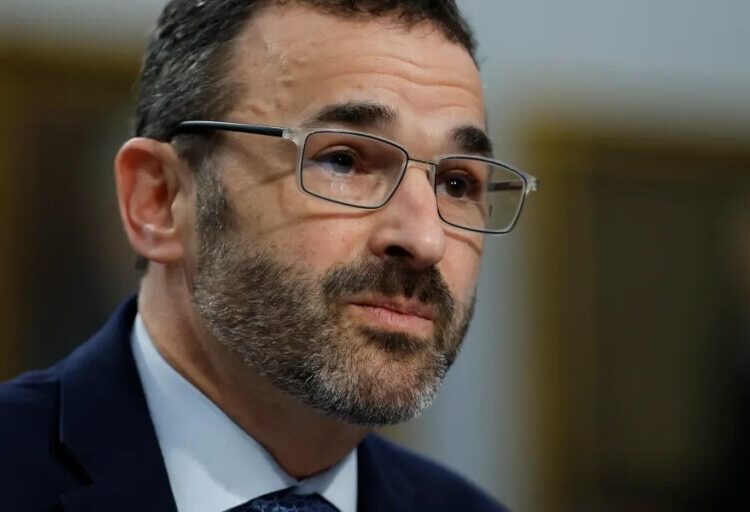
Winning the lottery isn’t what brought Carrie Edwards her 15 minutes of fame.
It was giving it all away.
Standing alone in her kitchen one day in September, the Virginia woman was thunderstruck to discover she had won $150,000 in a Powerball drawing.
As she was absorbing her windfall, she said, “I just heard as loud as you can hear God or whoever you believe in the universe just say, this is — it’s not your money.”
Winning the lottery isn’t what brought Carrie Edwards her 15 minutes of fame.
It was giving it all away.
Standing alone in her kitchen one day in September, the Virginia woman was thunderstruck to discover she had won $150,000 in a Powerball drawing.
As she was absorbing her windfall, she said, “I just heard as loud as you can hear God or whoever you believe in the universe just say, this is — it’s not your money.”
Then came a decision: She would donate it all to her three most cherished charities.
Her donation could not have come at a better time. Two of the three organizations she helped were soon dealing with increased demand for their services as the federal government shut down at the end of that month.
The Virginia Lottery publicized Edwards’s generosity, and her story began to ricochet around the world.
Her journey to the lucky prize started when she walked into a 7-Eleven with a friend who wanted to buy two Powerball tickets. The jackpot for the Sept. 6 drawing was topping $1.7 billion, the second-largest amount ever.
Edwards, 68, hardly ever played the lottery, but her friend was an active player who gave her two pieces of advice: Always buy a paper ticket, rather than getting them online. And the Powerball multiplier is a scam, don’t do it.
She ignored him on both accounts.
She created a Virginia Lottery account on her phone. Then, instead of the typical strategies of using family birthdays and lucky numbers, she went to ChatGPT — which she had only recently started using for research — and asked, “Do you have any winning numbers for me?”
“Luck is luck,” replied the chatbot.
Then it gave numbers that she plugged in — paying the extra dollar for the Power Play to multiply anything she might win.
She initially thought luck wasn’t on her side when she didn’t win the massive jackpot. But what she didn’t realize is that she’d picked the “draw two” option, meaning her numbers were reentered for the next drawing.
When she got a notification on her phone that she had won, she said, she thought it was a scam, or maybe she’d won something small, like $10. Just to satisfy her curiosity, she logged into her account and saw that she had matched four of the five numbers plus the Powerball in that second drawing. It would have been a $50,000 payout, but the multiplier tripled her winnings.
After coming to her decision to give it all away, she said, her second thought was: Navy 1, Army 0.
Edwards comes from a Navy family, while the friend whose lottery advice she didn’t take was an Army veteran.
As the daughter of a career naval officer, she knew that some of her winnings had to go to support service members and their families.
The Navy-Marine Corps Relief Society is a nonprofit organization that provides financial assistance and other services for members of the military. Her late father, who was a fighter pilot and ended his career as chief of naval operations at the Pentagon, had asked in his will that his children donate part of their inheritance to the organization.
Edwards’s $40,000 donation from her lottery winnings came at a crucial time, as concerns grew over government pay and furloughs from the government shutdown, said Robert Ruark, president and CEO of the nonprofit.
The money is being used to help families facing financial hardships due to the shutdown, deployments and other day-to-day family emergencies, Ruark said.
While her father inspired that donation, her late husband, Steve, inspired another one.
In his late 50s, Steve had been diagnosed with frontotemporal degeneration, which is the most common form of dementia in people under 60 and has no approved treatments to stop it or slow it down.
As his condition worsened, Edwards retired from her work in public relations to care for him. In 2023, the couple moved from Fairfax County in Northern Virginia to the Richmond suburb of Midlothian to give him more access to their children and new grandchildren. Steve died at the end of that year.
After Edwards retired, she began volunteering for and giving to the Association for Frontotemporal Degeneration.
The organization receives donations that can range from $5 to over $1 million, CEO Susan Dickinson said, but the larger amounts that come from research partnerships and benefactors — singular gifts like the $50,000 from Edwards — are rare. Dickinson called the amount “wonderfully impactful.”
The money will be directed toward research, funding grants for pilot programs and helping bring together people with the disease and those trying to treat it, Dickinson said.
Edwards also volunteers and is a board member for Shalom Farms, a nonprofit that grows fresh local produce and distributes it to about 10,000 Richmond residents.
The $40,000 donation also came at the right time for the farm, as the government shutdown caused a delay in food-assistance benefits that led to a surge in demand.
“We needed to purchase more items to make sure that we would have enough for folks,” Executive Director Anna Ibrahim said. “A donation like Carrie’s that is a surprise … means that we had the ability to meet people where they are with more products.”
The money will also be invested across the organization to help local farmers and other initiatives, Ibrahim said.
Soon after Edwards collected her prize, she found her story going viral, with outlets from local to international covering her donation.
When Edwards went to her usual salon to get her nails done, one of the owners walked up and told her she was famous now, showing a picture of her on the front page of a Vietnamese newspaper on their phone.
Her three adult children were surprised by her lottery win and supportive about giving it all away, she said.
She has no regrets. She said she feels blessed that she was able to spread the word around the world about the causes she holds dear and hopes she might be an inspiration for others.
“I feel like I’ve been given a platform to set a good example for my children, for my husband’s legacy, for my dad’s legacy, by actions. That’s what speaks loudest,” she said.
The post ChatGPT helped her win the lottery. She gave it all away.
appeared first on Washington Post.




